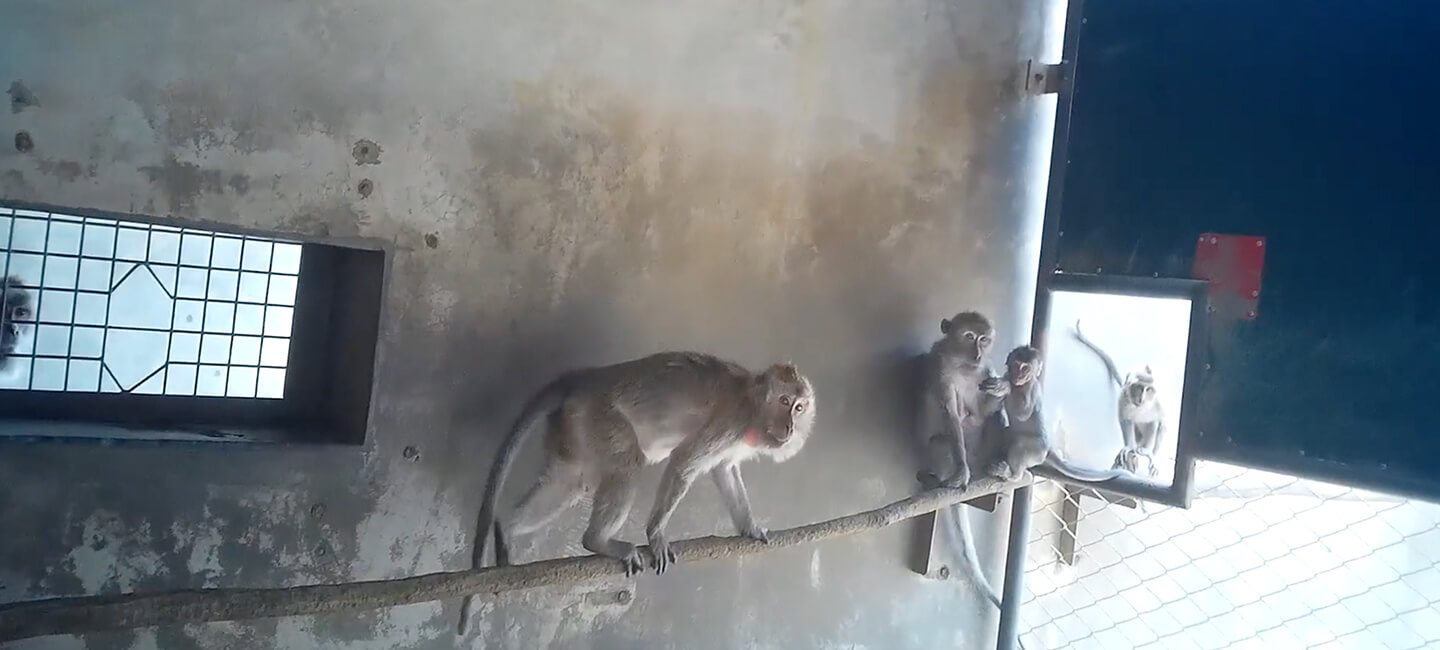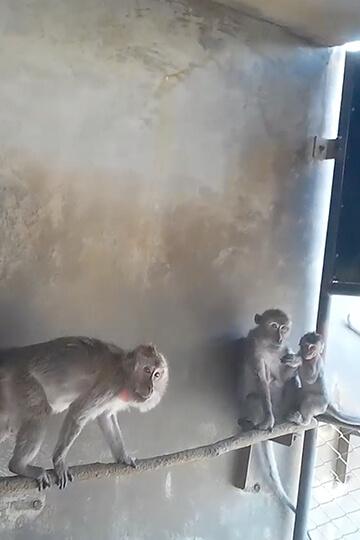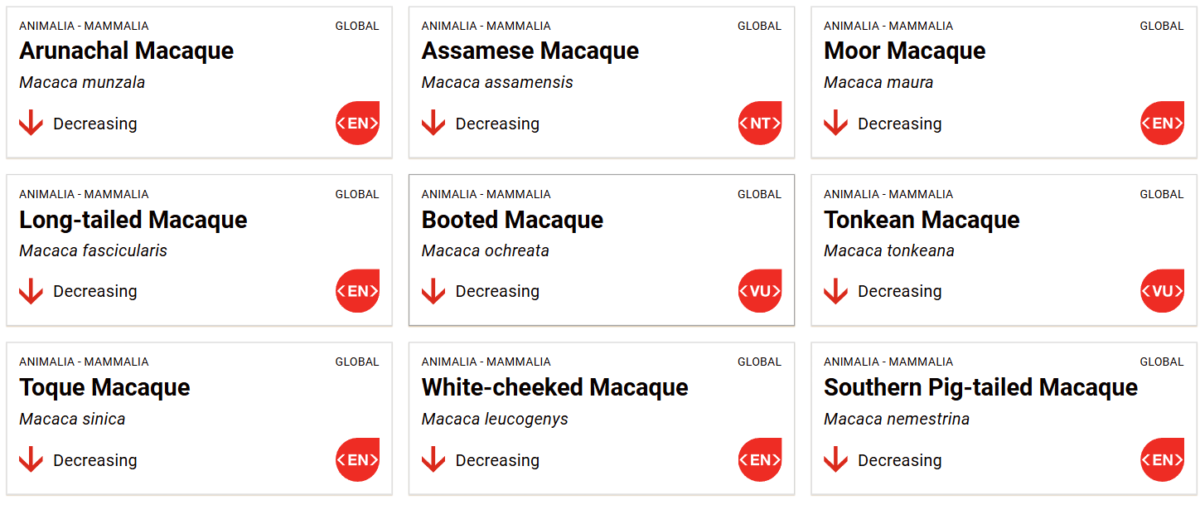

The CNRS and the pharmaceutical industry are contributing to the disappearance of macaques
Highly sought after by the biomedical industry, long-tailed macaques were classified as an endangered species by the International Union for Conservation of Nature (IUCN) in 2022.
However, in France, the National Centre for Scientific Research (CNRS) is planning to expand the primatology station in Rousset into a National Primatology Centre, thereby fuelling the trafficking and decline of this species. This project condemns hundreds of monkeys to captivity and experimentation. There is still time to act: let’s work together to reject this dangerous initiative and protect these endangered primates.
Always more experiments, even at the expense of biodiversity
Long-tailed macaques (Macaca fascicularis), also known as “crab-eating macaques” or “cynomolgus”, have become sadly famous since the Covid-19 epidemic. Today, they account for 80% of primates used in the pharmaceutical industry. Ranked among the most sold animals in the world, they are exploited on a massive scale in the field of toxicology.
Their trade is fuelled by demand from laboratories, particularly in France, one of the main importers of primates for experimentation. As our investigations in Mauritius have shown, thousands of monkeys are bred there and exported each year to European laboratories. Captured, caged and transported over long distances, these primates are victims of widespread exploitation that threatens their survival and fuels a cruel and opaque trade.
Lobbies on the defensive
Following the IUCN* classification of the species as endangered, our partner Peta USA is working to have long-tailed macaques listed under the Endangered Species Act in the United States. Meanwhile, the American National Association for Biomedical Research (NABR) is fighting to have their status revised so that they may continue to be exploited without restriction, on the pretext that their use is “crucial to medicine”.
Whether or not they are officially classified as endangered, all macaque species are in decline. Deforestation, capture for trade, exploitation in laboratories: these primates are under increasing pressure, with their survival being threatened.
As a picture is worth a thousand words…
But despite these risks to their survival, the pharmaceutical industry is not backing down, and the French National Centre for Scientific Research (CNRS) is not ready to give up on the sacrosanct monkey…
The CNRS, a major contributor to their decline
One Voice has long been alerting the public authorities to the threat to long-tailed macaques, now classified as endangered by the IUCN. However, far from protecting these animals, the CNRS is contributing to their disappearance by fuelling the international trade in primates. By importing hundreds of monkeys for its future national primatology centre, it is directly involved in a trafficking that is decimating wild populations. It is time for France to take action to protect them.
Let’s say no to the National Primatology Centre and the use of macaques in experimentation!
Help us make the authorities see reason: sign our petition against the expansion of the Rousset station into a national primatology centre and oppose their use in laboratories!
Take action with us
24 April is World Day for Animals in Laboratories. On this occasion, we are mobilising for macaques throughout France: join us, especially on Saturday 26 April in Rousset.
* Intergovernmental organisation dedicated to nature conservation, responsible for drawing up a ‘Red List’ of threatened species worldwide.
